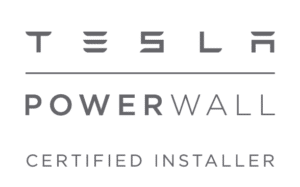Battery storage is the future of solar energy in California. Solar batteries allow you to use more of the electricity your solar panels produce and give you greater control over your home solar system.
Element Electric is an experienced, local solar panel and battery storage installer in Dixon, California. We believe solar batteries have the potential to transform the way Californians produce and consume electricity, and we want to help you upgrade your home. In this guide, we’ll explain how solar batteries work, what your solar storage options are, how much a solar battery costs, and how you’ll benefit from a solar panel and battery installation.
How Solar Batteries Work
Solar panel batteries work like any other battery—a power source charges the battery so that it can provide power on its own. In a solar plus battery system, the power source is the solar panels. Any extra power they generate is used to charge the battery, which can then be used to power your home.
Power from your battery is distributed throughout your home by your electrical panel, the same way power from your solar panels or the grid is.
Most solar batteries utilize smartphone apps that allow you to easily use and monitor your battery’s power.
Types of Solar Batteries
There are several types of solar batteries, including:
- Lead-acid batteries
- Lithium-ion batteries
- Flow batteries
All types of solar batteries utilize different technologies to produce the same result—stored solar energy for your home.
Most solar batteries on the market today are either lead-acid batteries or lithium-ion batteries. Lead acid batteries have been around for longer, but lithium-ion batteries are more advanced and have become the standard for solar battery storage. The big names that you might be familiar with—Enphase IQ, Tesla Powerwall, and LG Chem Resu—are all lithium-ion solar batteries.
Pros and Cons of Solar Battery Storage
Benefits of Solar Batteries
Solar batteries take your solar power system to the next level and give you a ton of benefits you don’t get with solar panels alone.
Blackout protection: Solar batteries give you backup power and protect you against PSPS events, rolling blackouts, and weather-related outages.
24/7 Solar Power: Solar batteries give you 24/7 access to solar power so you can use your own electricity at night instead of buying from the grid.
Savings: You can use your stored power strategically to avoid expensive time-of-use rates.
Faster payback period: In California, the payback period for solar plus storage is expected to be faster than solar alone under net energy metering (NEM) 3.0.
Lower carbon footprint: Solar batteries let you use more solar power, and the more solar power you use for electricity, the less fossil fuel you consume!
Solar tax credit: Solar battery storage is eligible for the 30% federal solar tax credit.
Disadvantages of Solar Batteries
The only real drawback to solar battery installation is the added cost. Adding a battery to your solar panel installation will make the project more expensive. But we find, in most cases it is worth it, especially with NEM 3.0 in effect in California.
Before NEM 3.0, the grid could act as your battery. Any excess power you produced would be sent to the grid and your account would be credited at the full retail rate. You could then use your credits to buy grid electricity when you needed it. The grid would effectively store your power for you.
Now, net metering has changed in California and export rates are significantly lower. Under the new system, it makes much more sense to store your own power onsite with a solar battery so you can consume it yourself and avoid sending it to the grid.
How Much Does a Solar Battery Cost?
NEM 3.0 is pushing for more solar plus battery installations. Peak solar production doesn’t align with peak electricity demand times in California, which means solar-only systems don’t do much to help the grid. Solar plus storage systems, on the other hand, can store excess power during peak production hours and deploy it when it’s needed most. Solar NEM 3.0 export rates are highest in the evening when generation is low and demand is high to incentives solar batteries.
Solar battery prices and installation costs can vary significantly even for houses in the same area. It all depends on the type of solar battery you install, the number of solar batteries you install, the current state of the supply chain, and several other factors.
Because there are so many factors at play, it’s almost impossible to estimate the cost of a solar battery installation without details about your specific situation. The best way to get an accurate solar battery estimate is to talk to a professional solar installer.
Element Electric would be happy to give you a free estimate for solar panel and battery installation. We provide honest, straightforward pricing and help you make the best decision for your home and budget without any annoying, high-pressure sales tactics.




